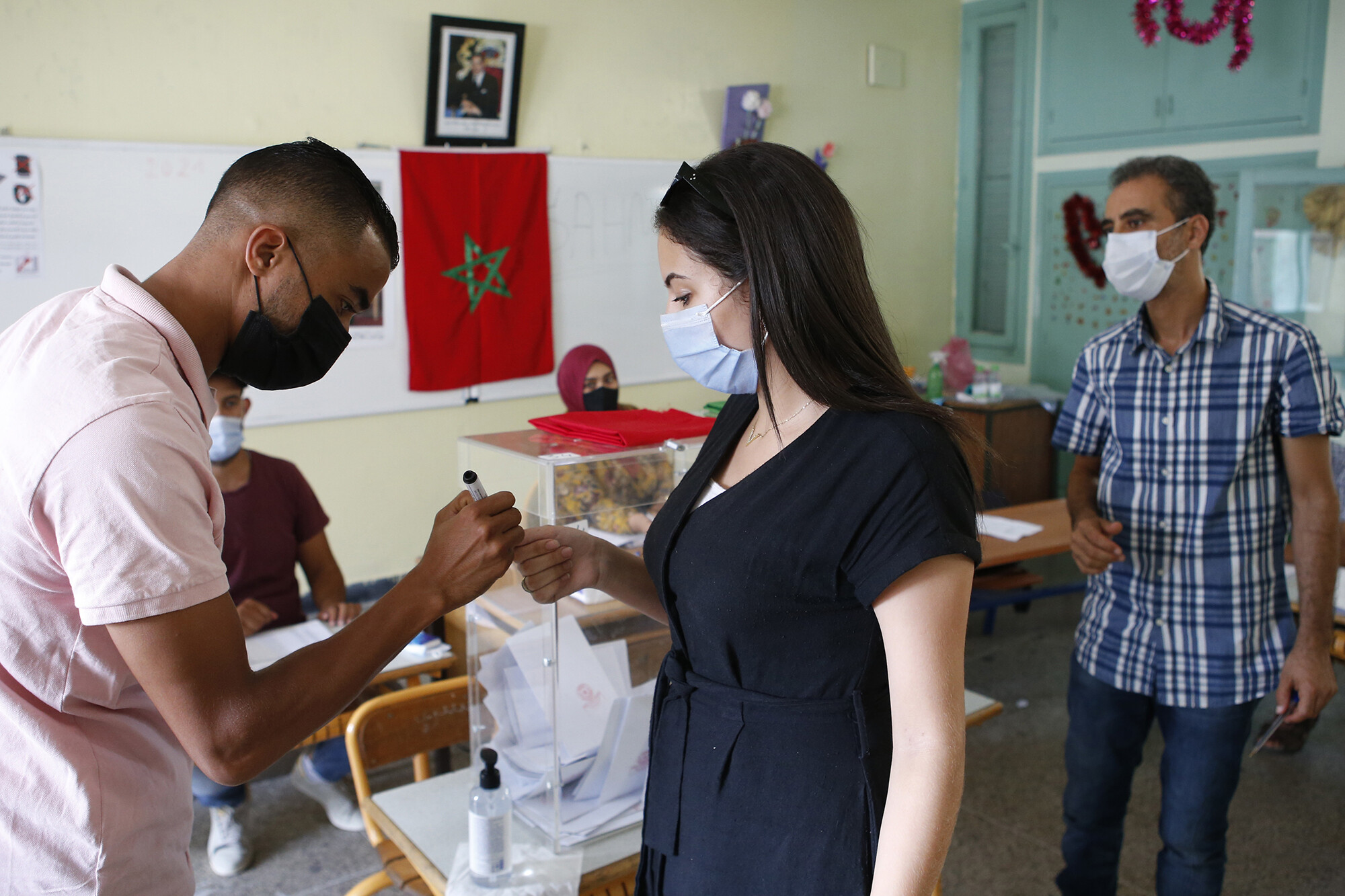
(From left) Doctoral student Hannah Yamagata, research assistant professor Kushol Gupta, and postdoctoral fellow Marshall Padilla holding 3D-printed models of nanoparticles.
(Image: Bella Ciervo)

Young citizens across the globe vote at relatively low rates, which contributes to political parties’ de-prioritizing issues that matter to youth, from climate change to well-paying jobs.
A new study by political scientist Guy Grossman of the School of Arts & Sciences and co-authors looks at the effects of low-cost online interventions in encouraging young Moroccans to turn out and cast an informed vote in the 2021 elections.
The study by Grossman, lead author Romain Ferrali of Aix-Marseille School of Economics, and Horacio Larreguy of Instituto Tecnológico Autónomo de México and published last month in Science Advances, targeted young people on Facebook in the weeks before the Moroccan general elections, inviting them to play games and answer quizzes as a way to boost civic education and convince participants that voting matters.
Before the September 2021 election, the co-authors used Facebook ads to recruit 7,521 participants in Morocco between the ages of 18 and 35. Social media use is widespread in Morocco, and Facebook is the most used social media platform in the country, with 70.5% Moroccan internet users aged 16-64 using the platform at least once a month.
The online interventions helped participants check their registration status on the voter file and, if necessary, assisted in navigating the registration process; provided them with civic education material through a short video emphasizing the role of voting in strengthening institutions; and helped them to identify the party that lined up best with their policy preferences through an online tool that compared the stated policy positions of participants on a variety of politically salient issues to parties’ positions over those same issues.
After the election, the co-authors conducted a brief follow-up survey on actual turnout and party choice, and what they found was surprising in some ways, and expected in other ways.
Contrary to their expectations, the interventions didn’t increase average voter turnout.
“We didn’t anticipate that these types of mobilizations work only on a very particular set of people, which were those people who were unsure about whether to vote at all,” says Grossman. Those very committed to a candidate or with absolutely no interest in the election weren’t swayed.
“Mobilizing voters can be costly” Grossman says. “We learned it’s important to determine the type of voter that you have in front of you to make the most of those efforts. Someone who is very engaged can’t really be moved and neither can someone who is totally disengaged, so you might not want to spend a lot of resources on them. It’s a good lesson and good information for political parties or non-government organizations or any group committed to increasing participation in elections in any country in ways that are scalable and inexpensive.”
They chose to target the Moroccan election because Ferrali is from the country originally, an NGO he was working with was based there, and he had a sense of the issues that were at stake in the upcoming election. But the fact that politicians cater to older citizens is a worldwide issue, the authors say, and takeaways from the study can be applied globally.
“We know from previous work that politicians are more likely to cater to the preferences of those that actually vote in the election, who are, on average, older people,” Grossman says. “That happens in many countries. Look at the United States: the reason the GOP doesn't touch social security, Medicaid, or Medicare, even if they’d prefer to privatize it, is because their older voters oppose privatization of these popular welfare programs.”
That younger people don’t vote at high rates would not be a problem if the preferences of all voters were identical, but obviously that’s not the case, Grossman says.
“We know that young people care about things like the climate and maternal health that the older generation cares less about. We thought it was important to mobilize the young voters and if we want to reach the youth, we have to talk to them where they are, which is on social media,” he says.
Ferrali notes that in any online campaign, the user experience is going to be key in getting the best, most accurate results.
“Even if I come to you and hold you by the hand to register you to vote, if I’m giving you a clunky experience, you won’t follow through,” he says. The Moroccan government doesn’t campaign to get young people to register to vote, and the baseline experience of it isn’t great even when youth do vote. “We bridged the first gap, but not the second, and you need to do both,” he says.
In the study there is both good news and bad news, the authors say. They found that information about parties’ platforms increased support for the party closest to respondents’ preferences, leading to better-informed voting. But that finding also comes with a caveat.
“The good news is that if we think that people should vote for the party that represents their policy preferences, we were able to move people to do that in a relatively inexpensive way,” Grossman says. You want people to vote for the party that represents them best.”
The bad news is also how relatively easy it was to move people in a certain direction, says Grossman. “In this age of misinformation, it means that someone who's dishonest could use disinformation in such settings to move voters in quite a nefarious way. It was a warning sign of how uncritical voters can be, and that is an important lesson.”
Kristen de Groot

(From left) Doctoral student Hannah Yamagata, research assistant professor Kushol Gupta, and postdoctoral fellow Marshall Padilla holding 3D-printed models of nanoparticles.
(Image: Bella Ciervo)

Jin Liu, Penn’s newest economics faculty member, specializes in international trade.
nocred

nocred

nocred